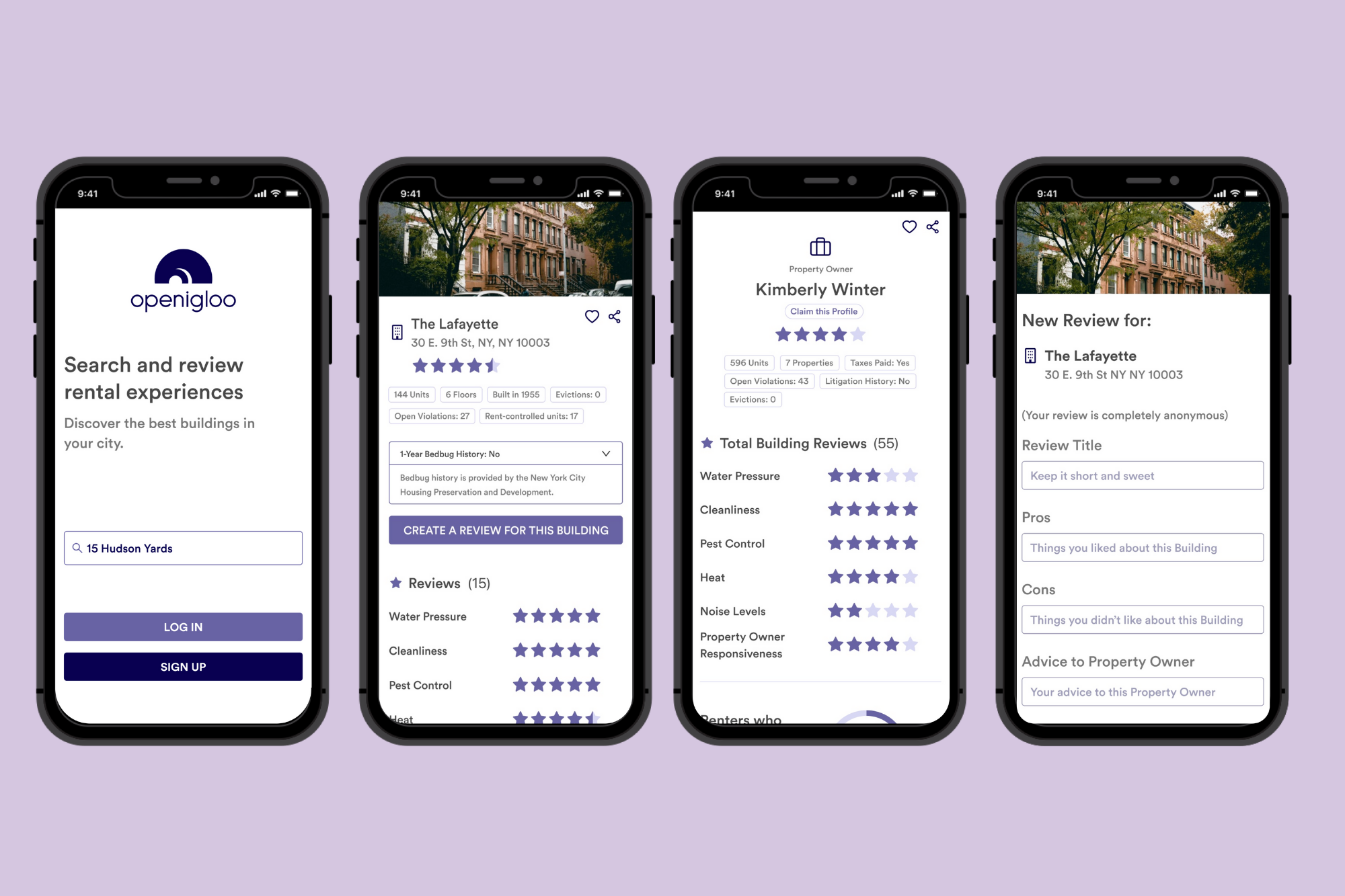
New York City’s 311 hotline has received more than 90,000 housing complaints since the coronavirus lockdown began in March, with a third of callers griping about heat and hot-water issues.
The city also has seen a 40-percent drop in bedbug complaints between 2015 and 2019, while cockroach and mice complaints are up 20 percent and 7 percent, respectively, over the same period.
The figures come from OpenIgloo, a new startup that is aiming to bring transparency to the city’s notoriously grueling apartment-hunting process by gathering public information on thousands of rental buildings in the five boroughs into a single app.
The app solicits reviews from renters, asking them what they like and don’t like about their buildings. Prospective renters can use the platform to see neighborhood trends.
For example, the Upper East Side has less violations per capita, including bedbug and water-related, than the Upper West Side, with just four open bedbug violations compared to the West Side’s 48.
Renters in the East Village are generally happy with their neighborhoods, with 80 percent of OpenIgloo users who live there saying they’d recommend their buildings. That number slides to 60 percent for Williamsburg residents.
Users can enter the address of a building they’re looking at in OpenIgloo and instantly receive information on its owner and any open violations, as well as its litigation history.
The platform — which already has more than 1,000 building reviews as well as details on over 100,000 properties — is anonymous for tenants, who are asked to score their building in a number of categories including heat, cleanliness and maintenance. Landlords are not given a choice in whether they have a profile on OpenIgloo, which automatically pulls building data from city records.
But tenants aren’t given free rein to complain about their buildings.
“This isn’t Yelp, where people are ranting in paragraphs about the landlord that they hate,” Mohamed said. “We tried to design it in a way that the feedback and the comments are constructive and useful for both landlords and future tenants.”
Allia Mohamed, who co-founded the app with fellow Columbia grad Srujan Routhu, said the goal is to address the “asymmetry” in how much information tenants are forced give up when they’re applying for an apartment versus what landlords disclose about themselves.
“If you want to move into an apartment, the landlord asks you for everything but the kitchen sink on your background,” she said. “But if you even ask a question to them about who they are or how they manage their building, there’s a very high chance that you probably wouldn’t get that apartment because you’re going to be looked at as a high-maintenance tenant.”











